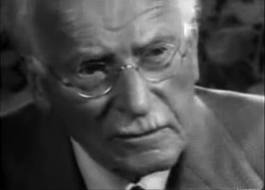The BBC this week broadcast the first in its series entitled Great Thinkers: In Their Own Words – Human, All Too Human.
The programme makers note that the 20th century was a time of unprecedented change and conflict. Violence and war spread across the world, and as new technology evolved it became possible to harm others on a previously unimaginable scale.
In this turbulent age a new breed of thinker emerged who would examine what drives humanity. The programme provides an opportunity to hear some of these great thinkers in their own words.
The one-hour documentary includes archived footage from both Freud and Jung. In the case of Freud, the programme shows the only moving footage of him and the only voice recording of him ever made.
The documentary is available for viewing for a very limited time on https://bbc.in/pCOTgL
The programme considers what Freud and Jung had to say about humanity’s ability to destroy itself. Both thinkers were concerned with the role of the unconscious.
We see Jung forcefully asserting that “the only real danger that exists is man himself“. He emphasised how “pitifully unaware” we are of the danger of man. “We are the origin of all evil“. Jung emphasises the need to recognise the evil in each person (his concept of the ‘shadow’). For us to achieve our own potential each of us must face up to our own dark side.
Jung describes how “each of us has our individual destiny which we can achieve through a process of individuation“. He compares man to a seed, which when it grows turns into an oak tree or whatever type of tree it is meant to be. But often man does not become what he is meant to be, does not get “where he belongs“. He becomes stuck, as a result of external conditions, other hindrances and pathological disturbances.
The programme then goes on to consider footage of Stanley Milgram and his experiment in which individuals are instructed to inflict ever stronger electric shocks on participants who gave the wrong answer. 65% of participants inflicted the maximum 450v (or, rather, believed they were inflicting) on another participant when instructed to do so. The experiment showed that it does not take an evil person to create an evil system. Ordinary people are easily integrated into malevolent systems. We do not see ourselves as responsible for our own actions, but rather as agents for others. We are all capable of acts of cruelty simply because we are told to perform them.
The BBC documentary then considers the role of R D Laing and his objection to the use of violence of psychiatry.
The programme then turns to anthropologists Margaret Mead and Derek Freeman, followed by Dr Benjamin Spock and B Skinner, the founder of behaviourism.
A quick look at Desmond Morris then brings us to the work of Jane Goodall. Footage includes her being interviewed about her observation of chimpanzees by Valerie Singleton on Blue Peter. David Attenborough concludes that her observations redefined what it means to be human. Particularly controversial was her discovery of aggression and violence in chimpanzees and the implications this had for our understanding of human beings.
No examination of the Great Thinkers of the 20th century would be complete without mention of Richard Dawkins. Footage includes him explaining the title to his book “The Selfish Gene” – the gene may be selfish but that does not mean that individuals are. For Dawkins the brain is so powerful that it would be very wrong simply to consider our behaviour to be determined by our genes.
The programme’s presenter concludes that the sophistication of the human brain has given us the means to recognise and master our worst impulses.
But… (referring to Jung), is it really the case that we are now “masters in our own house”? Even with an in-depth analysis, are we really always in control or do we come to accept and understand the limits of our mastery over ourselves and find ways to use that which we do not know or understand to help us to become the person we were meant to be?
If you are interested in working with the unconscious with a Jungian analyst in London, please click here.
Earlier posts relevant to this article:
“The Untouchable Within“: for a homily on YouTube from St Paul’s Cathedral, London on Jung’s concept of the shadow click here.
An evaluation of Carl Jung’s contribution (Carl Jung and the Search for Meaning) written on the 50th anniversary of his death may be read here.
For information on a recently published book, Becoming: An Introduction to Jung’s Concept of Individuation please click here


